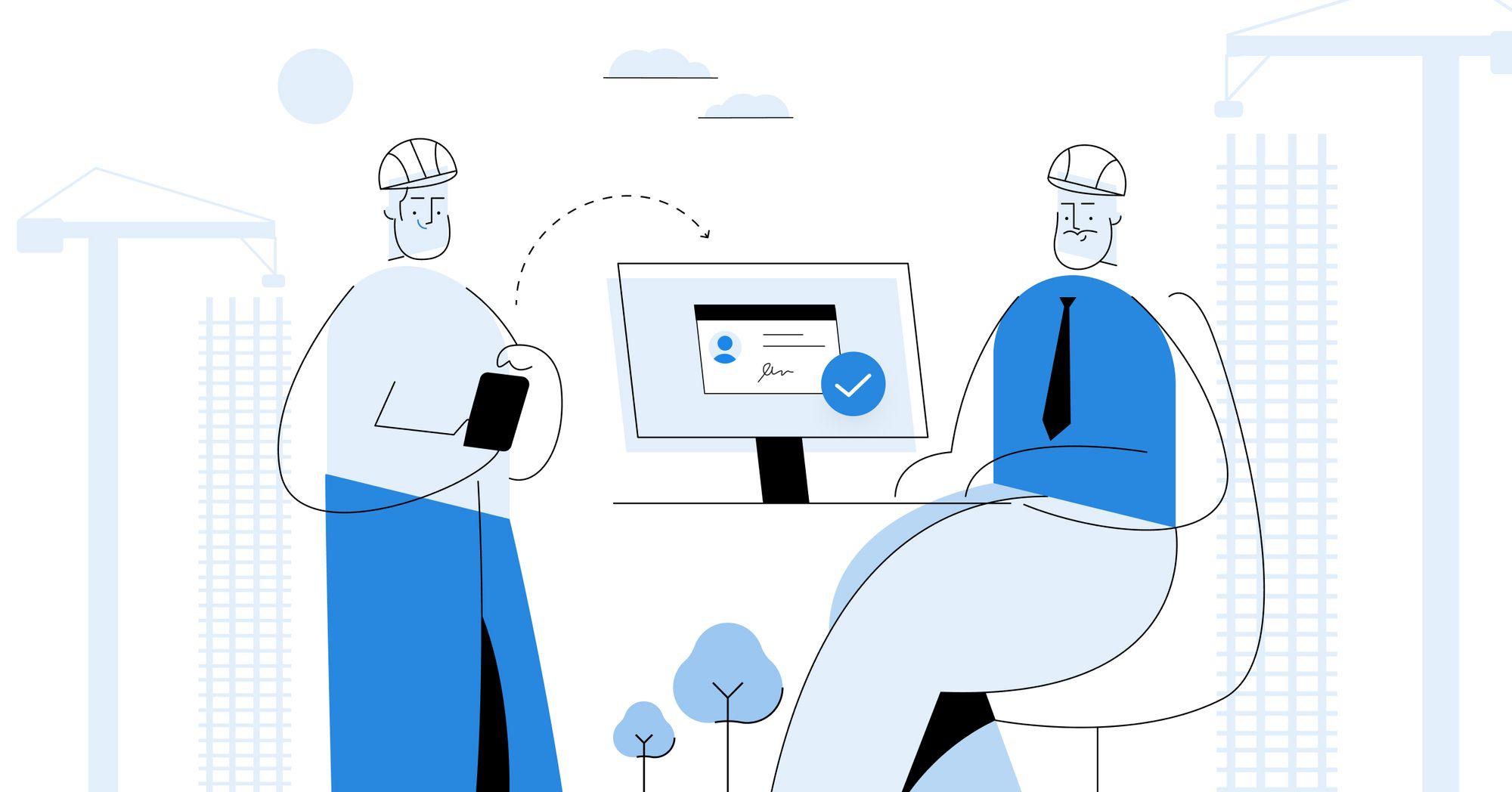With almost 7.5 million people working in the construction industry and 673,000 people employed by the mining industry, contributing about 5% to overall employment in the US economy, it’s becoming more important to simplify the verification of qualifications and ensure each worker is fully certified for the job at hand.
The current process when verifying the certifications and qualifications of each worker consists of:
- Each worker holding a paper-based certificate for each qualification they have.
- Handing these paper-based certificates over to the site managers.
- Site managers having to verify each of these qualifications by calling the issuing body.
- Noting each worker's accreditations to ensure they do not carry out tasks on site they are not qualified for.
This process must be done on each new site a worker attends. The worker cannot begin their day until their accreditations have been verified, this can take hours to do and causes delays in the scheduled work.
There are many issues with paper-based certifications from reduced productivity to heightened compliance risks. In the UK, it’s a legal requirement under the Health and Safety at Work Act 1974 (HSWA) that businesses are responsible for developing and following a health and safety policy to keep employees out of danger. Many countries have passed similar worker safety laws, however, some businesses fail to comply with this legislation. A worker can change the expiration date of a qualification and reprint, or produce fraudulent qualifications they claim to have earned - this causes huge compliance risks for the site if the verification process fails.
“Being found guilty of breaching the regulation can cost far more than it would to comply, as you could face staggering fines, legal costs, compensation, sick pay, and more. Health and safety fines alone can cost £62,770 more than the cost of compliance for an SME.”* Verifiable Credentials removes the risk of accidentally approving and verifying a fraudulent qualification.
How Verifiable Credentials transforms this process
With verifiable credentials, each worker stores their accreditations on a digital wallet on their mobile device. They have full control over these accreditations and who sees them. They are also not prone to loss or damage as is the case with paper-based credentials.
Digital credentials remove any risk of fraudulent activity; credentials are issued by an educational or training body, and these can be optionally anchored to the Dock blockchain which serves as a timestamp for the credential, providing an expiration date for each qualification. The verifier (being the work site) can instantly verify the credentials; through the use of cryptography, can know they are legitimate. This removes any compliance risks associated with the credentials as a worker cannot falsely claim qualifications.
Hours down to minutes
By integrating with Dock and utilizing verifiable credentials, the process of verifying a workers qualifications goes from analysing paper-based certificates and calling each educational body to certify the legitimacy of it, to having the accreditations sitting in a tamper-proof digital wallet, with a digital signature signature from the issuing body certifying the legitimacy.
This process goes from hours of verifying workers to minutes, reducing delays in the scheduled work while ensuring no fraudulent certifications are presented.
As mentioned above, certificates are held in a digital wallet; should an educational or training body cease to exist, the credentials stay in the digital wallet, and as the decentralized identity that issued the credential is immutable and stored on the blockchain forever, it’s legitimacy can be verified indefinitely.
Dock’s API is easy to use and integrate with, sign up and trial the API in test mode. You have 50 free transactions to use on production, access to the sandbox test net at all times, and no card required on sign up.
If you’d like to find out more about API and how it will benefit you and your company, book a consultation with our experts.

